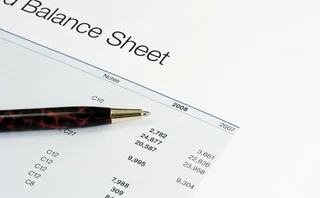
Derivatives exchange volumes still declining
Derivatives trading volumes continued to fall across several leading exchanges in July.
At Frankfurt-based Eurex, the average daily volume (ADV) in July was 9.5 million contracts compared with 10.7 million in June. A similar pattern occurred at the Chicago Mercantile Exchange (CME), where the ADV for July was 9.8 million contracts compared with 11.4 million in the previous month. Futures and options volumes at the Hong Kong Exchange (HKEx) also dropped to a monthly total of 7.94 million compared with 9.17 million in June.
There were particularly large declines in equity derivatives volumes. Eurex saw equity index derivatives drop to a monthly total volume of 65 million contracts compared with 71.1 million in June, and equity options and single-stock futures reached a monthly total of 24.7 million contracts compared with 30.2 million. Similarly, CME E-mini equity index volume averaged 2.4 million contracts per day, compared with 2.8 million the month before, and equity standard volume averaged 96,000 contracts per day compared with 154,000 in June.
Volumes for interest rate derivatives also fell sharply. At Eurex, a total of 34 million contracts were traded in the interest rate derivatives segment in the month of July, down from 45 million in June. CME Group interest rate volume averaged 4.2 million contracts per day, down from an ADV of 5.1 million contracts in June.
"We are experiencing a slowdown in the whole economy. Credit has been tight, which has been reflected in our volumes. However, what is important is that customers are still using our contracts to hedge and manage risk. Volume declines have not been across the board with some products performing very well," said Mary Haffenberg, associate director for commodity and equity products at CME.
These results appear to be part of a larger trend of decline that has seen volumes fall well below those recorded this time last year. At Eurex, ADV this July dropped by 30.5% from the same month in 2008, while at CME, ADV was down 25%. At HKEx futures and options were down 5.1% from last July.
IntercontinentalExchange (Ice), however, has bucked the trend, achieving large volume increases and even record highs in some product areas last month. ADV for Ice's futures markets was more than a million contracts, an increase of 34% from July 2008. Ice Futures Europe established a monthly volume record of 15.8 million, with volume records set in a number of contracts, including European gas oil and EU emissions futures.
This success is partly due to new acquisitions and an expanded product range. New products, such as Ice ECX Emissions, are growing rapidly, although benchmark products such as Brent crude oil are also seeing healthy growth. Its new clearing platforms Ice Trust and Ice Clear Europe have also had an impact.
Commenting on the results, Ice chief financial officer Scott Hill said: "Second-quarter volume growth was driven in gas and oil as well as coal and emission futures. Our European Brent crude contract volume also remains relatively strong due to the growing recognition of its importance as a benchmark for global oil prices. July's numbers in our energy futures markets remain strong, including European Brent with ADV growth of 36%."
Ice may also see further rises in volumes with the rollout of a single-name clearing framework in September in both the US and Europe, subject to regulatory approval.
See also: Exchanges see drop in volumes
BIS shows first OTC derivatives market decline
BIS: decline slowing on derivatives exchanges
Eurex trading volume nudges ahead of CME
Trading volumes surge as Lehman clients rehedge
Only users who have a paid subscription or are part of a corporate subscription are able to print or copy content.
To access these options, along with all other subscription benefits, please contact info@risk.net or view our subscription options here: http://subscriptions.risk.net/subscribe
You are currently unable to print this content. Please contact info@risk.net to find out more.
You are currently unable to copy this content. Please contact info@risk.net to find out more.
Copyright Infopro Digital Limited. All rights reserved.
As outlined in our terms and conditions, https://www.infopro-digital.com/terms-and-conditions/subscriptions/ (point 2.4), printing is limited to a single copy.
If you would like to purchase additional rights please email info@risk.net
Copyright Infopro Digital Limited. All rights reserved.
You may share this content using our article tools. As outlined in our terms and conditions, https://www.infopro-digital.com/terms-and-conditions/subscriptions/ (clause 2.4), an Authorised User may only make one copy of the materials for their own personal use. You must also comply with the restrictions in clause 2.5.
If you would like to purchase additional rights please email info@risk.net
More on Exchanges
Nasdaq leads push to reform options regulatory fee
Proposed rule change would pare costs for traders, raise them for banks and defund smaller venues
Asia’s ETF assets on the rise – HKEX presents the results of Asia ETF survey 2019
Asia’s total ETF assets surged by 23.9% in the first half of 2019 thanks to an increasing adoption of ETFs into investment portfolios. According to a survey conducted by Hong Kong Exchanges and Clearing (HKEX), asset expansion in Asia’s ETF market is set…
NYSE Offers Exchange-Calculated Bitcoin Index, with More to Come
NYXBT will initially be based off data from Coinbase Exchange.
Deutsche Börse to set up Europe's first multi-asset RMB platform
German exchange group signs joint venture deal with CFFEX and Shanghai Stock Exchange
Exchange Revenue Figures Rise, Fall; Data Revenues Continue Steady Increase
A mostly positive mix of Q1 results also yield big increases in data revenues for some exchanges.
Lift-off for ASX Aussie dollar swap clearing business
Volumes jump following revamp of Sydney bourse's clearing incentive scheme
Exchange Data Revenues Make Positive Start to 2015
Acquisitions made up for some shortfalls in exchange revenues







